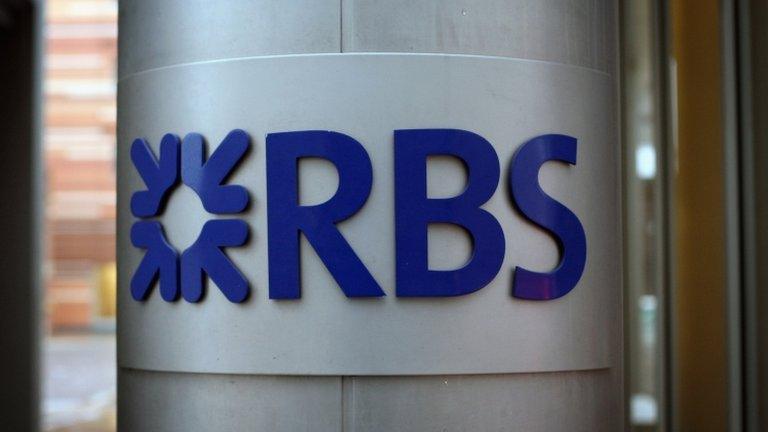Most only have £500 of savings says Lloyds boss
- Published
- comments
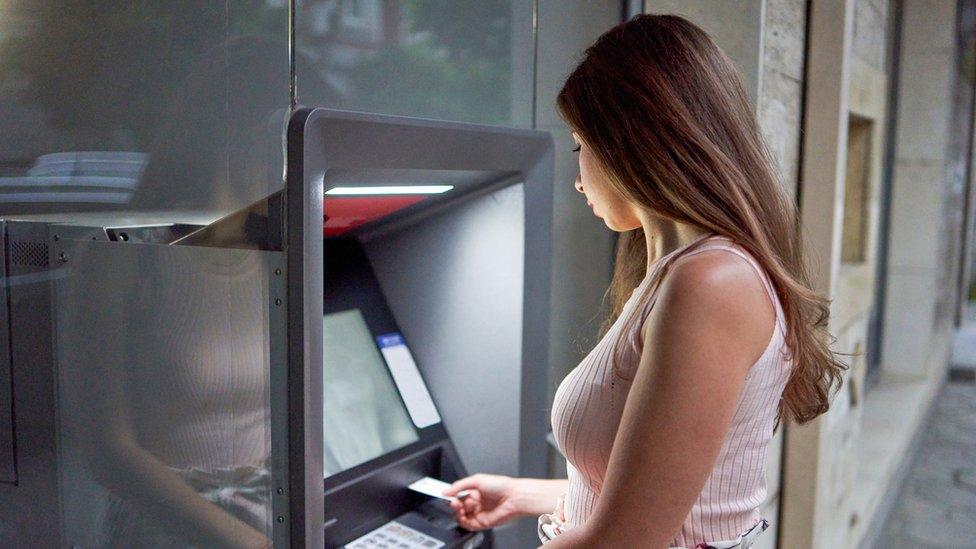
Most Lloyds Bank customers have less than £500 of savings in their accounts, its chief executive said.
Charlie Nunn said Lloyds had seen customers seeking debt advice jump up by a third in just the first six months of this year.
Credit card spending on travel was up 300% on last year, but the majority of Lloyd's customers were worried about the cost of living, he said.
It was possible for the UK to avoid the recession many are predicting, he said.
It comes as UK households struggle with the soaring cost of food, energy bills and fuel as inflation rises at the fastest rate in 40 years.
The head of the UK's biggest high street bank told the BBC: "80% of individuals and UK customers and families have less than £500 pounds worth of savings in their current account and their savings account.
"They might have money elsewhere. But what we can see is less than £500. So it's a very important starting point for looking at financial resilience."
But he said half of these customers had increased their balances in the last few years and were in a healthier position than they were before the Covid pandemic.
Travel spending up
He said credit card spending was up - the fastest in 17 years according to most recent figures - with travel being the biggest driver.
"Travel which is a particularly big part of credit card spending has bounced back up almost 300% year on year, coming from Covid and the constraints around travel back to where people are now," he said.
But he said 75% of Lloyd's 26m customers were worried about the cost of living. And 20% of them were cutting discretionary spending to afford essentials.
"Customers are concerned - and they should be. We've seen some areas where there's real points of challenge," he said.
Although there was a sharp increase in people with problem debts, only 1% of customers were unable to pay their day to day bills, he said.
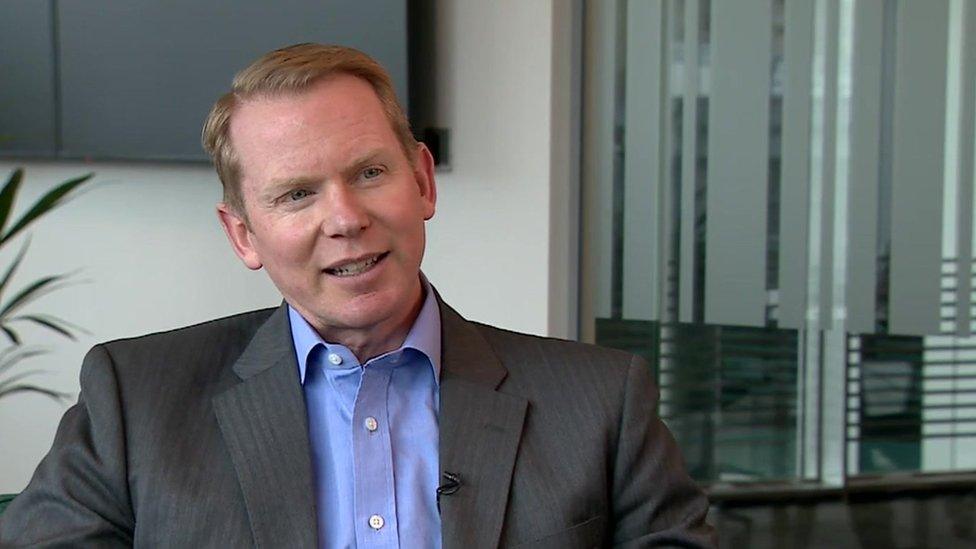
Lloyds Bank chief executive Charlie Nunn said he thought the UK could avoid a recession
Mr Nunn said he was concerned the UK was talking itself into a recession.
"We are concerned that I think we collectively are talking ourselves into the risk of too negative an outlook. There are pockets of strength in the economy.
"There are significant parts of the consumers in the UK who have strength and really want to spend and create that demand and we can continue to see opportunities to invest in growth.
"But yes, sentiment is challenging."
'Difficult few quarters'
Lloyds Banking Group is the biggest lender to households and small business in the UK and it is often seen as a bellwether for the entire UK economy.
So its chief executive has an important and influential perspective on household and business prospects.
Mr Nunn predicted the economy and house prices would both be roughly flat for the rest of the year but predicted interest rates would rise to around 2% in the next year from the current 1.25%.
This is much lower than the 3.5% others are predicting as high energy prices do a similar job as rising interest rates in forcing people to spend less, dampening inflationary pressure.
"We're saying no, we're saying we can see that it's going to be a difficult few quarters flat growth," he said.
"It could be plus or minus a bit but it will be flat growth in the next few quarters and really what we're focused on is making sure we're providing support to those customers who are going to struggle to make ends meet and the businesses as well because there are some sectors and some businesses that also have that stress."
Lloyds also employs over 65,000 people. The Bank of England governor has urged employers, workers and unions to exercise restraint when asking and offering pay rise to prevent an inflationary wage spiral. A call that drew fury from unions.
Some employers like Lloyds have tried an interesting approach.
Lloyds gave 99% of its workers a 3.6% pay rise plus a one-off autumn lump sum of at least £1,000. A more generous package at Rolls Royce - a 4% pay rise plus £2,000 lump sum - was rejected by unions as essentially being a below-inflation pay rise in disguise.
Mr Nunn said: "We very much want to support making sure that we don't build in inflation in a way that isn't needed. It felt like the right thing for this year. And it was the appropriate action in the context of this unprecedented inflation spike."
He said the bank would consider doing the same next year depending on the inflation picture.
As a major lender to businesses big and small, Lloyds is exposed to the risk of firms going bust as their input costs soar at the same time as their customers incomes dwindle. But Mr Nunn said he was not preparing for a wave of companies unable to pay their debts.
"We don't see a significant increase in bad loan charges, that's not the scenario we have. We are seeing low growth, higher inflation and we're seeing slight increase in but stable unemployment. And that's how we think about the next four, six quarters."
Related topics
- Published13 June 2022
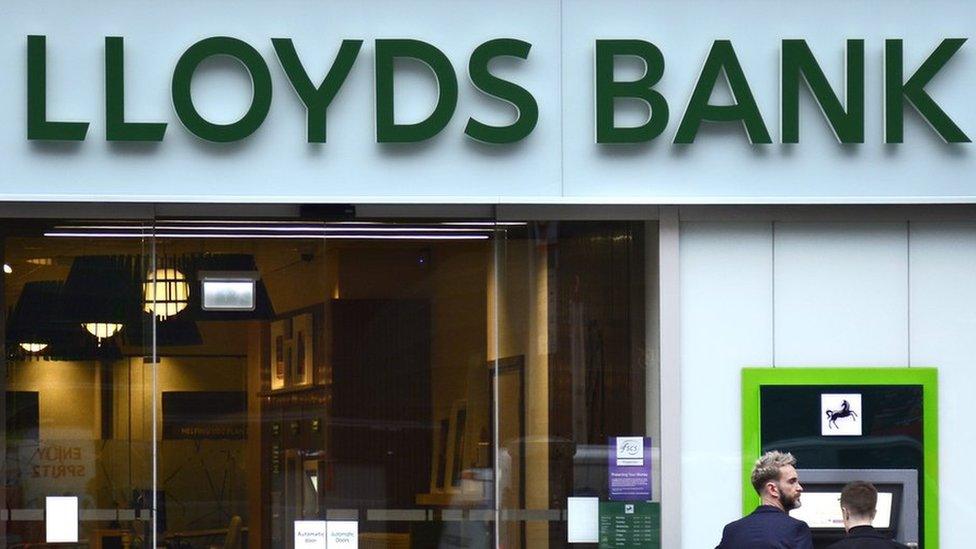
- Published24 March 2022
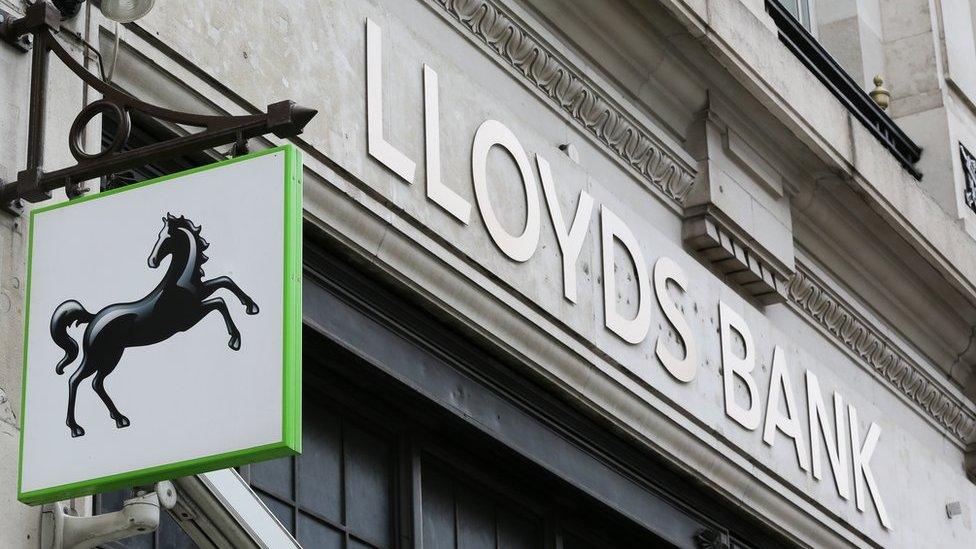
- Published28 October 2014
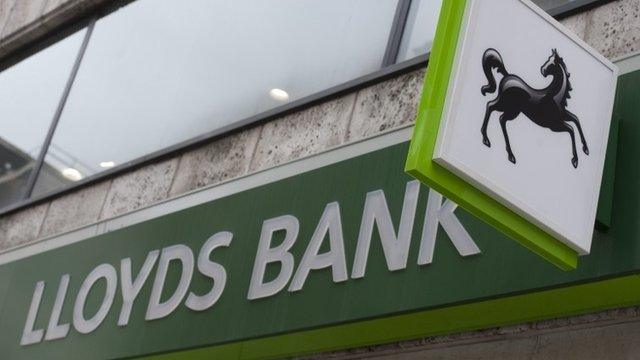
- Published5 February 2022
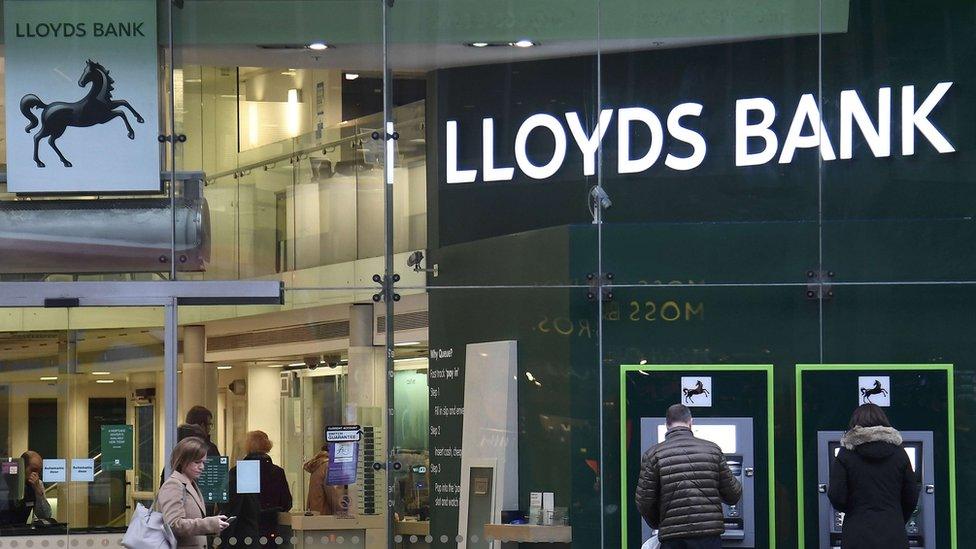
- Published28 May 2014
